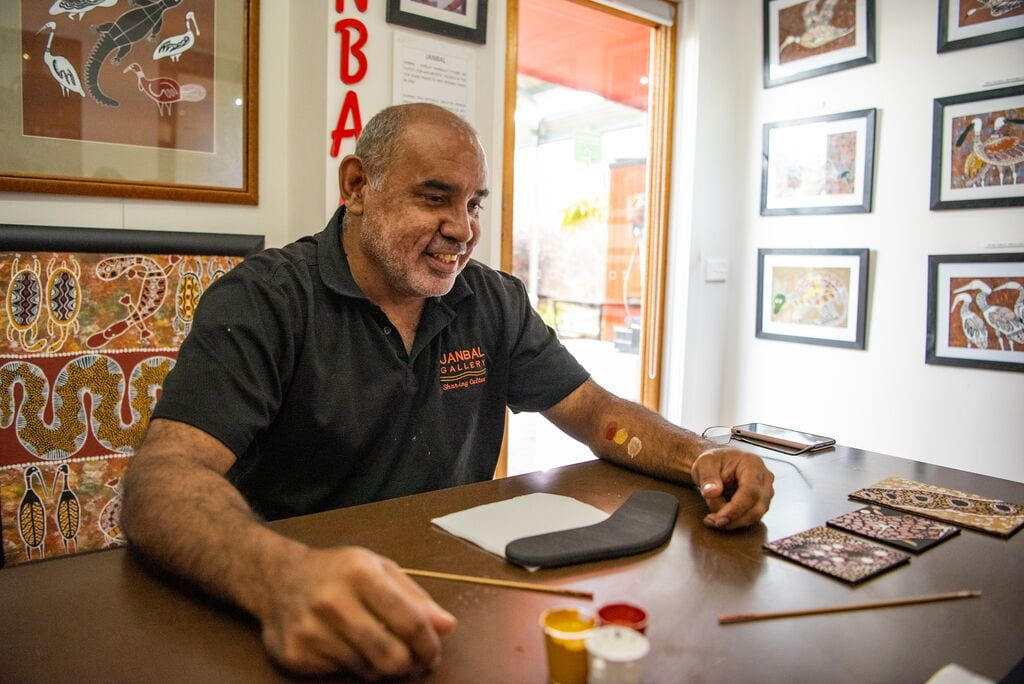The Australia-based responsible tour operator Intrepid Travel has always been committed to making a real difference in travel destinations by investing in local communities, human rights initiatives, wildlife conservation projects and the environment. As Intrepid's website states: "We’re all about operating in a responsible manner and incorporating principles of sustainable tourism and development into the way we provide our travellers with real life experiences."
Intrepid is not only a sponsor of the Indigenous Tourism Forum of the Americas—an initiative organized by the International Institute of Tourism Studies along with the Organization of American States and the Bureau of Indian Affairs— but the company's commitment to creating more opportunities for First Nations people provides valuable learnings for all of us.
 By James Thornton, CEO Intrepid Travel
By James Thornton, CEO Intrepid Travel
The current crisis is an exceptionally challenging time for travel, but it is also a chance to consider how businesses can rebuild more responsibly – environmentally, economically and socially, which includes fostering stronger understanding with Indigenous communities. Intrepid Travel is headquartered in Australia and we formally started our reconciliation journey by committing to a Reconciliation Action Plan (RAP). Reconciliation is about building stronger relationships with Aboriginal and Torres Strait Islander peoples and non-Indigenous Australians.
In July 2020, our 'Innovate’ RAP was endorsed by national body Reconciliation Australia. This built on our ‘Reflect’ RAP,
which was endorsed in 2019. While our experience is uniquely Australian and we’re still in the very early phase of our reconciliation journey, we wanted to share our experience so far to help encourage other organisations to take their first step. This is particularly important at a time when the global conversation is centered on discrimination and social justice, including for First Nations peoples.
For us, as a responsible business and a certified B Corp, developing a RAP was an important step. Intrepid is a truly diverse business with offices all over the world, but we were founded more than 30 ears ago in Melbourne, where our head office is. We also run trips in every state and territory in Australia (except Australian Capital Territory), including tours that visit remote Aboriginal communities and culturally significant places such as Uluru.
Intrepid Travel acknowledges Traditional Owners of Country throughout Australia and recognizes their ongoing connection to lands, waters and communities. We pay our respect to Aboriginal and Torres Strait Islander Elders past, present and future, and support the continuation of cultural, spiritual and educational practices.
But we cannot reflect on Australia’s history and our place in it without acknowledging the devastating and lasting effects that colonialism, land dispossession and racism has had on Aboriginal and Torres Strait Islander peoples. We know we need to play our part to close the gap that this legacy has created.
Developing a RAP, in consultation with First Nations advisors, is a way that a business can start to address inequalities, as it provides a formal framework and time frame for a business to take specific actions.
Since adopting our first RAP 18 months ago, we’ve introduced several changes – some of these are simple to implement but are significant nonetheless.

Personally, I now begin all important meetings, including company updates, with an Acknowledgement of Country. Our global websites also include an Acknowledgment of Country and at a product level, we banned alcohol on our visits to Uluru and started working with some new Aboriginal tourism operators in Queensland.
Under our Innovate RAP, we’ll take further actions over the next two years. This includes exploring internship opportunities for young people interested in a career in sustainable tourism and amplifying First Nations voices in our marketing and platforms.
We very much continue to be on the journey, but I’d like to share some of the things we’ve learnt so far:
- Do your homework and be open. We have a lot of learning to do. This is an ongoing process and it’s something that we’ve committed to at every level of our business. Engage First Nations advisors and do the work to understand the issues at play, and how inequalities are present in your business.
- Form a working group. Seek out people at all levels of your business who are passionate about reconciliation and who are committed to making change. These people must be empowered and made accountable. Ideally the working group would include First Nations people – this is something we continue to work on. Personally, I am updated regularly by our RAP working group lead.
- Build awareness. To be truly effective, everyone within the business needs to be on the reconciliation journey. You will need to dedicate time and resources to internal communications and continually share
information. We’ve found one of the most important parts of this process has been to listen, learn, engage, reflect and build respect for First Nations cultures and histories. We continue to work on this aspect, and we are fortunate that in Australia, there are many excellent resources
available.
As we rebuild from this crisis, we hope other tourism businesses will be open to change and starting their own reconciliation journey. Together we can rebuild more responsibly to benefit all communities, including First Nations peoples.
As an Australian-owned business, we acknowledge the Traditional Owners of Country throughout Australia and their continuing connection to land, waters and community. We pay our respects to them and their cultures, and to their Elders past, present and future.

